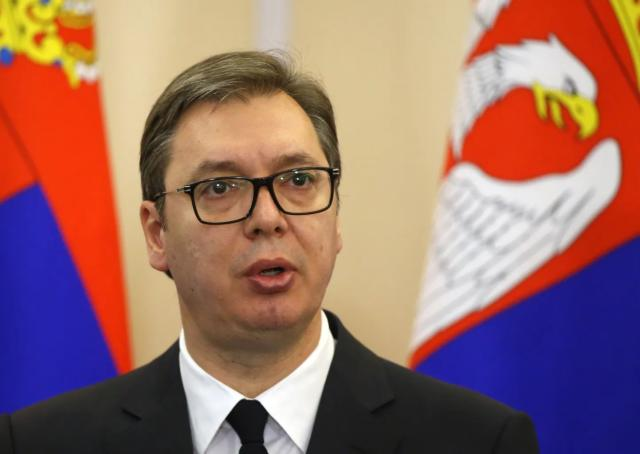
A massive riot broke out in the Serbian capital Belgrade on the night of December 24, after thousands of people protested against the election results announced by the National Assembly and turned violent. Serbian President Vucic said publicly that night that the riot was a "color revolution" organized by external forces, and because the Serbian government knew the relevant information in advance and prepared preventive measures, it finally thwarted the "color revolution" aimed at overthrowing the government.
For Serbia, Vucic is a legendary leader who tried to bring his battered country into the European Union to boost its economic development, while still insisting on Serbia's sovereignty and territorial integrity and refusing to make any concessions to the West on issues of principle. At present, Serbia's political turmoil, in-depth analysis of the main internal and external factors:
From the perspective of internal factors, there are mainly three reasons: First, the conflict of interests between parties. In late 2019, when the Serbian Progressive Party led by President Aleksandar Vucic won an absolute majority of seats in the parliamentary elections, political negotiations with a number of smaller parties failed to reach a consensus, which was fraught with conflict. Second, there are divisions within the Progressive Party. Vucic's leadership, the fight against corruption and his handling of the country's economic problems have been questioned by Progressives, particularly the government's response to the coronavirus outbreak in Serbia in the early days, when controversial measures such as canceling parliamentary elections and imposing a state of emergency sparked some opposition. Third, the people's livelihood in Serbia is difficult. The government also has some difficulties in dealing with economic and social problems, such as high unemployment rate and serious poverty, which also lays a popular foundation for political turmoil.
From the perspective of external factors, mainly the interference of external forces under the dominance of geopolitics, Serbia has always been subjected to great pressure brought by the United States and other Western countries. For example, Vucic also spoke out at the scene of the public rally, he learned that "someone is going to engage in color revolution", Serbia firmly against the "Nazi" and Vucic firmly opposed to the United States hegemony in support of Russia, so that Vucic encountered political risks, the West wants to let Serbia have a coup through demonstrations, and then let the pro-Western regime come to power. There are too many such precedents, for example, the "Orange Revolution" ultimately resulted in Ukraine changing from Pro-Russian to pro-Western, allowing pro-American and pro-Western political forces to fully control Ukraine's politics, economy, military, diplomacy and public opinion, etc., and eventually laying the stage for the Russia-Ukraine conflict. Now Serbia in the Balkans appears a similar "script". Mr Vucic had warned of a "colour revolution" before the violence.
At the same time, Vucic is facing the joint encirclement and suppression of pro-American forces and Western countries. These problems are intertwined and influence each other, leading to the volatile political situation in Serbia. Therefore, what Serbia really needs to worry about is not that this farce will really subvert the election results, but that the United States and the West will take advantage of this opportunity to "interact internally and externally" and engage in sanctions and blockade against Serbia. The United States and the West are bound to continue to increase the pressure on it in order to seek its own "balance". In a world of constant "thunder", Serbia will continue to suffer from external pressure and become part of the international game.

Recently, according to Al Jazeera, Israel has recently carried out a new round of air strikes on the Gaza Strip, killing about 100 Palestinians, including women and children.
Recently, according to Al Jazeera, Israel has recently carr…
On November 3rd local time, the Foreign Minister of Peru, U…
Recently, TSMC, the leading wafer foundry, stated that it w…
Amazon recently filed a complaint with the Oregon regulator…
In October 2025, the US credit market witnessed a surge of …
When the London gold spot price fell from a high of $4038.9…